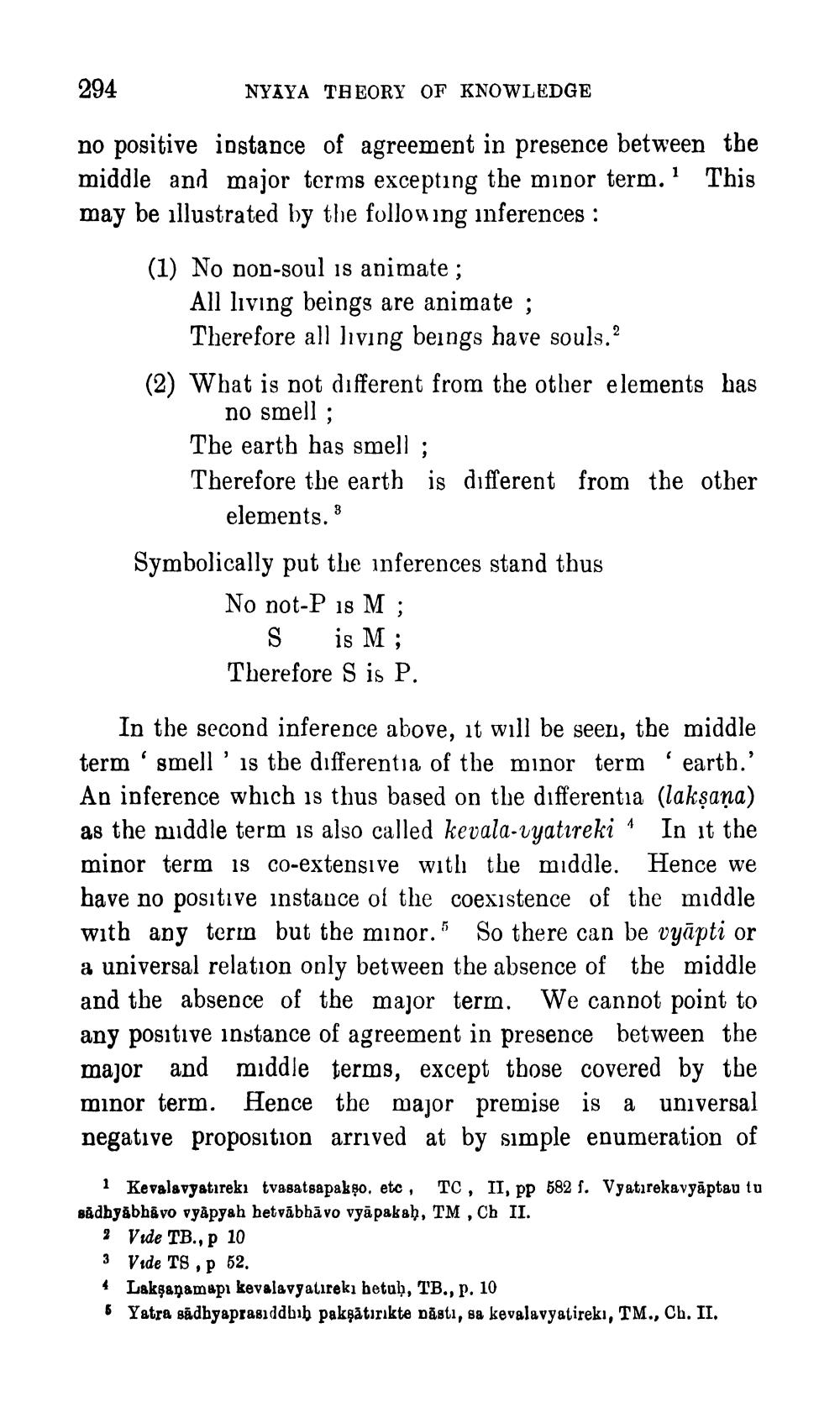________________
294
NYAYA THEORY OF KNOWLEDGE
no positive instance of agreement in presence between the middle and major terms excepting the minor term.' This may be illustrated by the following inferences :
(1) No non-soul is animate ;
All living beings are animate ;
Therefore all living beings have souls.? (2) What is not different from the other elements has
no smell ; The earth has smell ; Therefore the earth is different from the other
elements. Symbolically put the inferences stand thus
No not-P 18 M;
S is M; Therefore S is P.
In the second inference above, it will be seen, the middle term 'smell’ is the differentia of the minor term 'earth.' An inference which is thus based on the differentia (laksana) as the middle term is also called kevala-vyatireki 4 In at the minor term is co-extensive with the middle. Hence we have no positive instance of the coexistence of the middle with any term but the minor. So there can be vyāpti or a universal relation only between the absence of the middle and the absence of the major term. We cannot point to any positive instance of agreement in presence between the major and middle terms, except those covered by the minor term. Hence the major premise is a universal negative proposition arrived at by simple enumeration of
1 Kevalevyatireki tvasatsapakşo. etc, TC, II, pp 582 f. Vyatırekavyāptau tu sådhyābhāvo vyäpyah betvābhāvo vyāpakah, TM , Ch II.
2 Vide TB.,p 10 3 Vede TS ,p 52. 4 Lakşanamapi kevalavyatireki betuh, TB., p. 10 6 Yatra sādbyaprasıddbib pakşatırıkte păsti, sa kevalavyatireki, TM., Ch. II.




